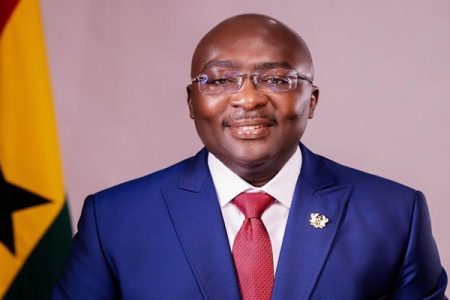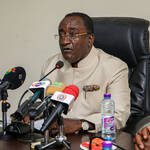Ghana Cocoa Board (COCOBOD) will begin covering full university tuition fees for the children of cocoa farmers from next year.
This announcement was made by Dr. Mahamudu Bawumia, flag-bearer of the New Patriotic Party (NPP) for the 2024 elections, during a Farmers’ Day celebration in Jacobu.
Speaking to an audience of cocoa farmers, chiefs, religious leaders, and local residents, Dr. Bawumia explained that this new initiative is part of broader efforts to improve the lives of cocoa farming families.
“Thanks to the Free Senior High School (SHS) policy, everyone’s child can attend senior high school without cost,” Dr. Bawumia said, to enthusiastic applause from the farmers.
“The government has now decided that from next year, COCOBOD will pay university fees for the children of cocoa farmers, so they can continue their education with full financial support.”
This new support builds upon COCOBOD’s historical commitment to education.
10,000 SHS beneficiaries each year
For years, its scholarship scheme has provided assistance to about 10,000 senior high school students annually, helping young Ghanaians from cocoa-growing regions achieve significant positions in society.
With the introduction of the Free SHS policy in 2017, COCOBOD saw to the completion of continuous student and shifted from the scheme and shifted its educational funding focus from senior high school towards tertiary education and primary school infrastructure.
Cocoa Board Education Trust
To manage this shift, COCOBOD launched the Cocoa Board Education Trust, reallocating funds from the Scholarship Scheme to cover university costs for cocoa farmers’ children while constructing model primary schools in underserved cocoa-growing communities.
These new model schools aim to close the educational infrastructure gap between rural and urban areas.
New focus
The decision to expand the scope of COCOBOD’s educational support came after consultations with stakeholders, including Members of Parliament, the Council of State, the Ghana Education Service, and Cocoa Farmer Associations.
Dr. Bawumia expressed confidence that this realignment of resources would make a lasting impact by both enabling higher education access and ensuring quality primary education in remote areas.
In his address, Dr. Bawumia urged the community to support the NPP in the upcoming elections, stating that his government would introduce additional socio-economic policies to improve living conditions in Ghana.
He assured the people of the government’s commitment to deploying new technologies to rehabilitate degraded farmland.
Impact of illegal mining on cocoa farms
Jacobu’s chief, Nana Adu Darko, raised concerns about the extensive damage to local farmlands due to illegal mining, which has compounded the effects of climate change on agriculture. “All our lands have been devastated.
The forest trees have been cut down, which has greatly affected farming and food production,” Nana Adu Darko lamented. He appealed to Dr. Bawumia and the government to consider a massive afforestation program to restore the forests and farmlands in the area.
Dr. Bawumia responded with a pledge to address these challenges, underscoring his commitment to the sustainable development of Ghana’s cocoa-growing regions.
- Cyber-attack: MTN urges customers to strengthen security - 28 April 2025
- Asante-Asiedu appointed Second Deputy Governor of BoG - 28 April 2025
- Nigerian films are for Nigerians first, Ghanaians second, and other thieves - 28 April 2025

